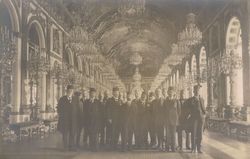Karl Süßheim Bey (1878–1947): A Biography on Borders
Kristina Milz’s doctoral project follows the Munich-based Orientalist Karl Süßheim through a variety of contexts: Socialized in the Franconian-Jewish middle class, the young historian departed for the Ottoman Empire at the beginning of the 20th century. His experiences and the people he came to know in the Middle East, first in Constantinople and later in Cairo, would shape him decisively. Back in Bavaria, he became a professor for Islamic history and Middle Eastern languages at the Ludwig Maximilian University in Munich. Even after he had received a commendation for his service as a military censor during the First World War, Süßheim was banned from university activity in 1933. After his imprisonment at the Dachau Concentration Camp in 1938, he decided to emigrate and was able to do so in 1941. He went on to teach in Istanbul until his death in 1947. As a practicing Jew married to a Catholic, as a convinced patriot persecuted by antisemites, and as an academic caught between the “old” and “new” schools of Oriental studies, Süßheim’s biography illustrates particularly well the ambiguities in the lives of European academicians in the first half of the 20th century. Süßheim was a crosser of borders – and in many ways an outsider, who had to struggle with social barriers all throughout his life. His hopes, efforts, and his failures illustrate scopes of opportunity and action within a transnational milieu.


